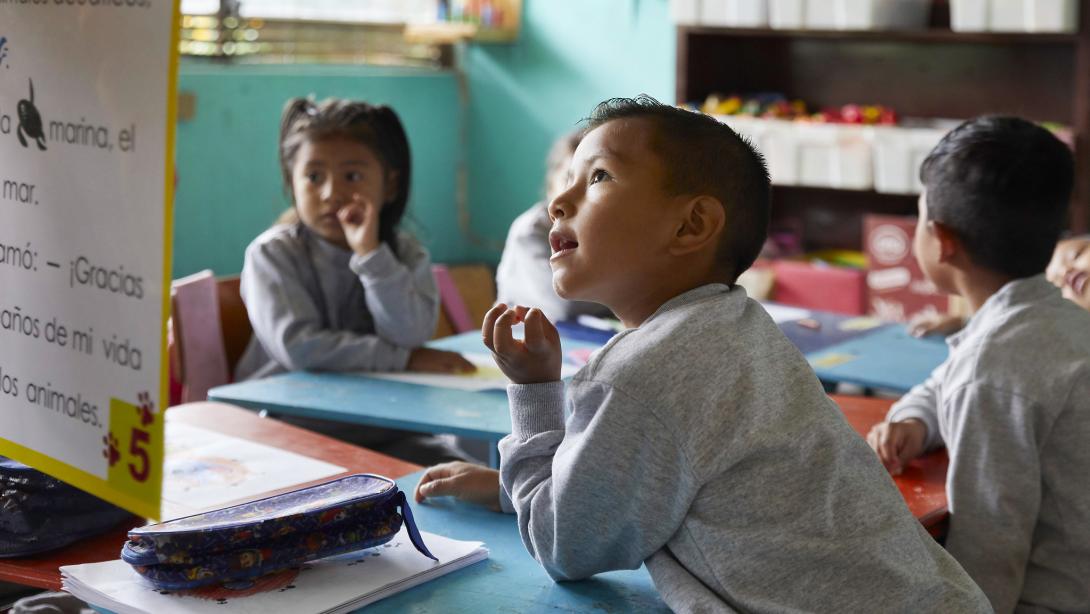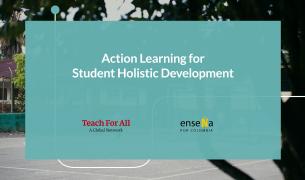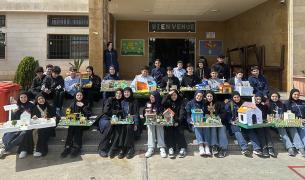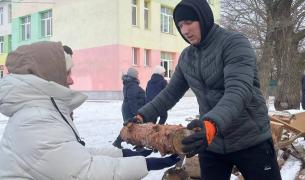Cultivating a culture of peace in Ecuador

Lee esta historia en español
By 2023, my country, Ecuador, had become the most violent nation in the Americas with a staggering homicide rate of 40 per 100,000 people—significantly above the global average of six per 100,000 people. The violence escalated dramatically in January 2024 when cartels took control of a national TV station and broadcasted the live kidnapping of journalists, marking the onset of an internal armed conflict. This wave of violence has further destabilized the country, with public officials, including presidential candidate Fernando Villavicencio, mayors, and judicial figures, being assassinated in just a few months.
Economically, Ecuador is projected to have the slowest growth in Latin America in 2024, with an estimated GDP increase of just 0.1%, according to the International Monetary Fund (IMF), which has exacerbated the country’s unemployment crisis. The country is also grappling with a severe energy crisis, with power outages causing substantial economic losses. In the current context of Ecuador, education must be seen not only as a priority, but as a vital tool to save a generation that is being consumed by violence and hopelessness. In districts like Durán, one of the most violent in the world, nearly 30% of young people drop out of high school, becoming easy prey for organized crime. Added to this is the alarming deterioration in academic development; the results from the most recent national assessment Ser Estudiante (“Being a Student”) indicated that 8 out of 10 high school graduates do not understand a basic text.
We are facing a perfect storm: violence that impacts daily lives of Ecuadorian students, young people leaving school, a learning system that does not respond to the demands of the 21st century, and a generation that sees no future in its country. During a recent visit to a school, I asked a group of students: "Who feels they have a future in Ecuador?" The silence I was met with was a clear and devastating response, though this image of hopelessness is only the tip of the iceberg.
The story of Juan, a student from Guayas, reveals how this violence has become a part of daily life for many people in Ecuador. During a virtual meeting that Enseña Ecuador hosted for students, fellows, and alumni to process the wave of violence in Ecuador, Juan shared that one day while traveling home to visit his family, he witnessed stray bullets riddling a house that was not the intended target of the shooting. This type of tragedy highlights the daily trauma that students can experience and how seemingly mundane activities—such as going home—can suddenly become much more risky. It reminds us of the profound impact that crime has on our communities and the urgency of action. But the question is: Are we willing to respond collectively to this threat that undermines our peace, our freedom, and our hope?
Talking about education as a solution is not new, but until now it has been a deeply underutilized resource. Achieving high-quality education requires much more than periodic quick-fix reforms, school infrastructure updates, or student scholarships - investments that are often touted by governments but fail to create lasting change. Education is a living system that depends on transformative leadership in the classroom; we can see each classroom as a representation of our country on a smaller scale and teachers as leaders with as much power as national leaders to shape their students' experiences, influence their values, and guide them toward becoming impactful citizens.
A national project
Transforming education can be the key inflection point that helps us navigate and overcome the current crisis in Ecuador. It is not a simple task, and requires a broad and complex strategy bringing together leaders working across sectors and communities towards a shared commitment to future generations. This is a commitment that goes beyond individual or partisan interests, it is a national project requiring sustained and collective action over many years. Only in this way will we guarantee our freedom and be able to overcome the serious crises we face.
Furthermore, education is the driving force behind the reconstruction of our social fabric. It's not just about transmitting knowledge and it doesn't just happen behind school walls. It is the foundation of a genuine peace process, based on dialogue, cooperation, and collective problem-solving. Without education, peace is an illusion. Only through a collective reimagining of what education is and then implementing that into policies and practices can we forge a society that builds the mutual understanding that Ecuador desperately needs.
A call for hope
Building a more just and prosperous future—one in which students like Juan can live their daily lives in peace and without trauma—cannot depend on isolated efforts. Education, as an engine of change, can no longer be seen as a distant ideal, but must be viewed as an urgent call to action. From any area, whether the classroom, politics, business, or civil society, we are all part of the solution. If organized crime has built structures to perpetuate its power, those of us who fight for change have the responsibility of generating structures that not only guarantee development and peace, but also promote long-term systemic transformation.If we want an Ecuador where our young people raise their hands with hope and confidence in their own future, we must commit to being an active part of this transformation. In a world with rising geopolitical tensions and protracted conflicts, there has never been a better time to invest in the leadership of students and teachers, who together can cultivate a culture of peace.


